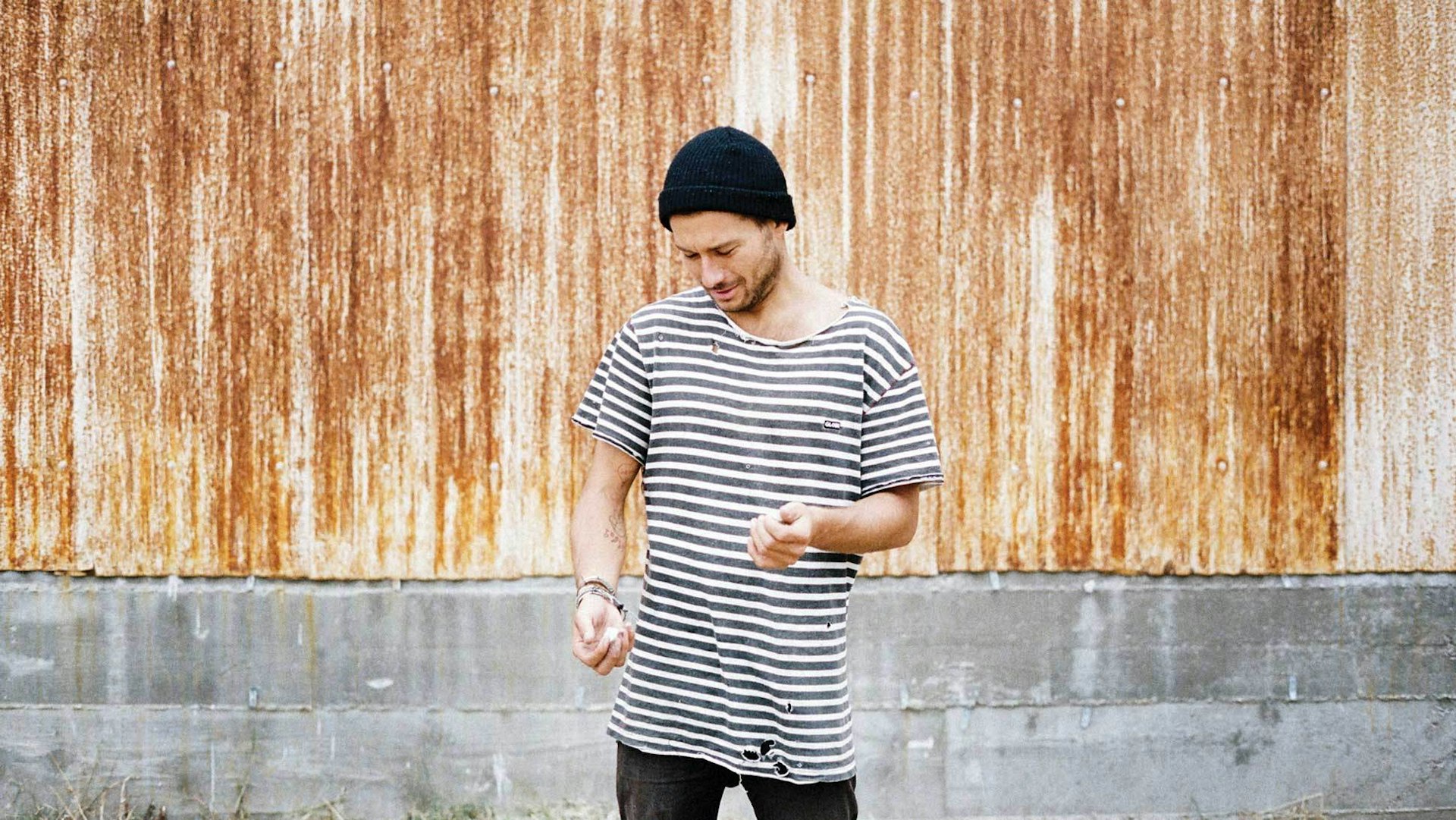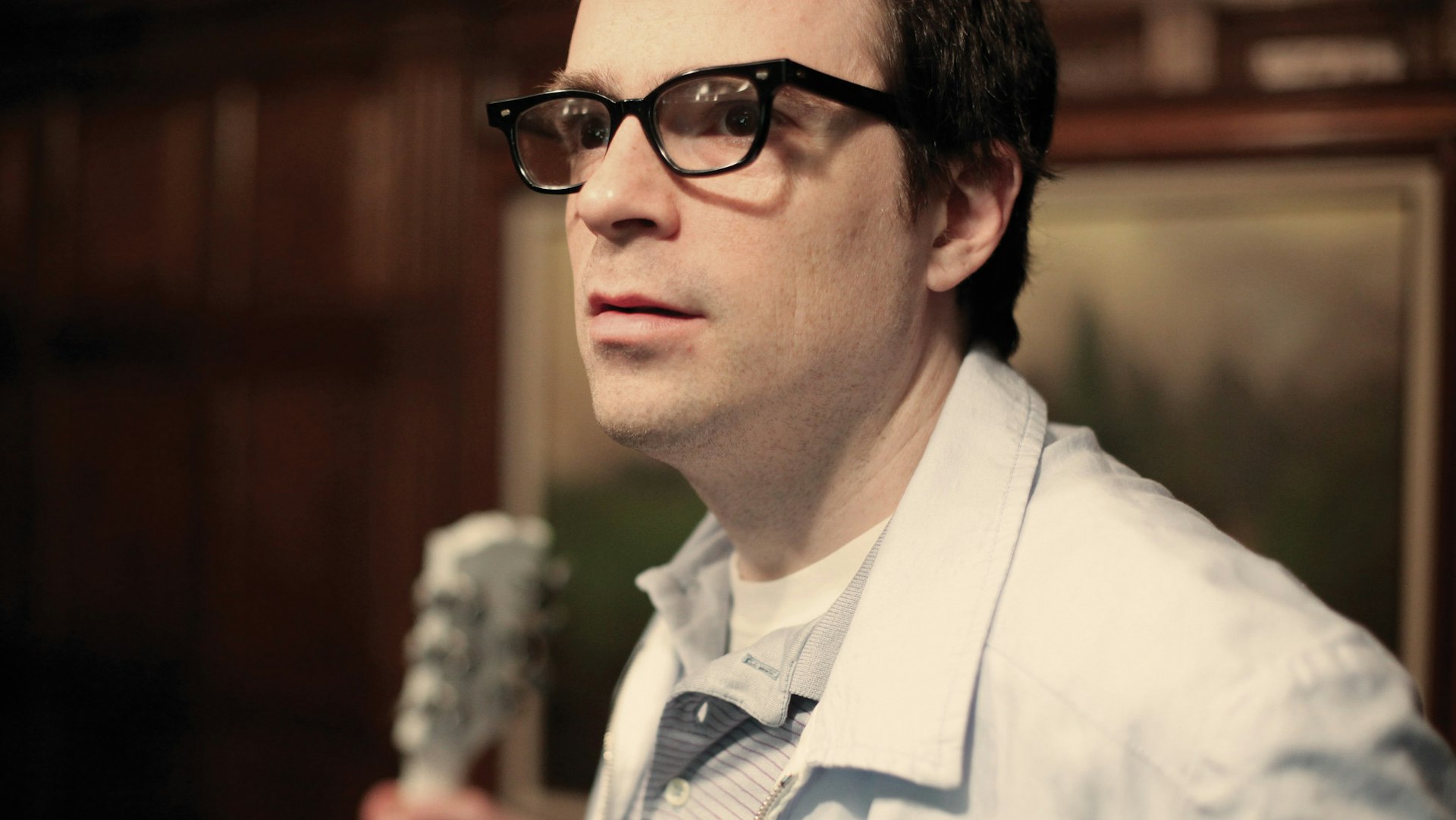
Dion Agius
- Text by Tetsuhiko Endo
- Photography by Lou Mora
You don’t find Dion Agius: you intersect him. From the time we first meet in a bar in New York, it takes a year and three different continents before we collide again on the east coast of Australia. And even then it takes an eight-hour road trip.
Kerouac called rootless travelling “the one noble function of our time”. Sounds nice, but the words look thin when held up to the dirty streetlights of a truck stop outside some abandoned town.
On the road, in search of Agius, also on the road. In the last five years, he hasn’t spent more than a month in any one place. Professionally, his hustle has paid dividends: everyone knows who he is, but no one knows much about him. He’s that aerial guy, that hipster surfer, the artist, the businessman. Doesn’t he come from Tasmania? Is it true he drives a Porsche and bootlegs alcohol?
He does come from Tasmania, but the family moved to the Gold Coast when he was a kid. He came up surfing heats at the Snapper Boardriders Club, a few years after guys like Mick Fanning and Joel Parkinson. He has a place in Byron Bay now, the closest thing to a home. “The most I ever get in one place is a month, max,” he says, as we float between sets at a windy beach break south of the famous bay. His filmer and best friend Beren Hall sits poised on the beach, hoping Agius will do something clip-worthy before the sun disappears behind a gathering storm. The last week has been bereft of good surf, leaving him plenty of time to wonder exactly what his job is all about: “It’s strange because I’ve been home for three weeks now. As soon as I leave I can’t wait to come back. But as soon as I’m here for a week or two, I can’t wait to get moving again.”
People who love the road seem connected somehow. Essentially, they’re greedy: they can’t settle, not in, nor for, and their commitment to non-commitment comes to define them, sometimes destroys them. Hemingway and Thompson blew their own brains out. Chatwin contracted AIDS somewhere between Patagonia and London. We already know about ol’ Jacky. Even the original romantic vagabond, Quixote, died broken and disillusioned with Sancho weeping at his side, begging him for one more adventure.
“Your relationships with people suffer,” Agius concedes. “I’ve had a couple of close relationships with girls in the last few years that I’ve had to break off and they are like, ‘What the fuck is wrong with you?’ But I honestly have to be like this because I can’t sit down in one place for too long.”
He doesn’t have to either. His lifestyle and his brand, one and the same, revolve around the selling power of the neo-vagabond image. And although he’s unabashedly dedicated to it, he’s the first to admit that it isn’t exactly his image: “You can’t decide what you’re going to do when you’re eighteen and just getting out of school. Unless you are some sort of genius with a comprehensive marketing plan, it’s going to take someone in a company to help you out.”
For Agius, that someone was Steve Douglas of Globe who plucked the young star out of the amateur competitive ranks and told him that he didn’t want a heat winner – he wanted a free surfer. You get the feeling that it was a relief for Agius – a gifted surfer, but one who lacks the single-mindedness that defines most great competitors.
“I pretty much attribute everything that I’ve been able to do to Steve Douglas,” he volunteers.
But it gets bizarre, this lifestyle marketing, this marketing lifestyle. “Honest to God: ninety-eight per cent of every single thing I’ve done in the last five years has been work related,” Agius says, “and I hate saying that because it’s just surfing, you know. I would never say to people that I just went to Indonesia to work because it sounds stupid.”
The sky darkens along with Agius’ hopes of getting a few clips. Globe is in the dream-selling business and he is their man on the ground. But if the waves he rides don’t make it through the camera lenses, his relevancy clock begins to tick. The down-days are the worst – the endless surf checks, Facebooking, emailing, wondering what the hell he can do to “at least make people think I’m busy”.
He isn’t particularly fazed by the insecurity of his job, but he also has no illusions about his place in the industry. In his own words he is a surfer who “teeters on the edge of being in and out of vogue”.
“Whereas someone like Mick or Parko or Slater,” he continues, “they’re so good, there’s no denying them. In my eyes, Dane [Reynolds, though he no longer needs a surname] sits above everyone because he has that talent but he also has a bunch of other interesting shit that he likes. He has opinions on things and he is well educated. Magazines need him; he has the power in those situations. Whereas I feel like my surfing is not to that level and I feel like the media has latched onto this thing where it’s like, ‘Oh, you like things other than surfing, that’s cool.’”
He says this without any chagrin. It’s all just a calculation, like a stock trader reading the market. The Agius men are entrepreneurs. His father was a food wholesaler and restaurateur before going bankrupt in 2009. Since then, Agius has been helping to support his parents one web clip at a time.
“One second you are cool, then the next big thing comes along and all of a sudden you’re out, because you are not as good as Dane and they don’t need you. That’s scary. You’re at their disposal and you have to keep them happy while they are also trying to keep you happy for as long as you are in… It all goes around in a big circle.”
As many surfers before him have found, it’s hard to move forward when you are stuck in a tight circle. Without competition wins to validate you, how do you keep appeasing the ravenous fifteen-year-olds who determine your market value?
Agius snorts ruefully and I get the feeling he has put a bit of thought into this as he tries to fill his surfless days: “I don’t know how long it will last. I just re-signed with Globe a couple of months ago. It’s a four-year deal with an optional four years after that. That’s great. But the longevity in free surfing is a tough thing. You’ve got to keep finding ways to reinvent the wheel. And how do you do that? How do you stay at the top of your game and keep doing things that are interesting? We don’t have a timeless skill-set like a journalist, for instance. We don’t have a set schedule of events where we can say, oh, I got third in that event. You have to keep staying relevant…”
It starts to rain buckets and Hall disappears to the car. We sit in silence until a wave comes and Agius snatches it, surfing like there is no yesterday and all his tomorrows depend on it.
